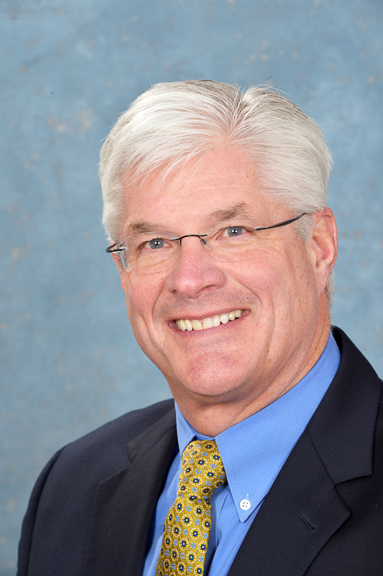
“Want to talk about marijuana?” Michigan Sen. Mike Shirkey, the Republican incumbent, asks the ten or so Hillsdale County constituents gathered near him for an open Q&A session at Jilly Beans coffee shop on Monday.
Nodding, they do. Polls suggest the legalization ballot initiative might not pass, though it’s close, Shirkey says, knocking on the wooden bench next to him. He’s adamantly against legalization, and the topic consumed more time than any other at the coffee hour, where the Republican incumbent is campaigning for the 16th-district Michigan senate seat, which he’s held for the last four years.
About a half an hour into the coffee hour, Shirkey had already touched on issues Hillsdale County residents brought up, including a bill regarding pharmacy benefit managers’ transparency and how they’re affecting smaller drug stores, and a tree-removal effort along roads in Adams Township.
Personable and sharp — he greeted a few incomers by their first names, without their prompting — Shirkey listened and parried constituents’ questions with questions of his own, expressing a limited-government approach on most issues.
“Do you want state government to get involved in the County Road Commission?” he asked the man who was concerned about losing his trees.
After hearing the constituent’s concern, he turned to his aid: “Okay, Molly, write these three points on these grants for tree removal. How do county road commissions themselves prioritize which [roads] are on the top of the list? Do they have to prove it’s a safety issue? If there’s value in the tree who receives the value?”
He even grounded his not-so-libertarian stance on marijuana in terms of keeping government out of people’s lives.
“We have socialistic expectations for healthcare and other public services drive by capitalistic incentives,” he said, noting that that is “by definition a conflict of conflicts.”
Marijuana legalization is “increasing the probability of people who are needing help,” he said, adding that the government will end up stepping in. “It’s hard to put the genie back in the bottle.”
Shirkey also brought up the national popular vote, a cause he calls “the Electoral College, Generation Two.” Shirkey co-sponsored a package of bills this month that would adjoin Michigan to an interstate compact that elects the president by national popular vote.
“When our Founders created the electoral college, I don’t think they understood how brilliant it was,” Shirkey said. “The other thing they did that was just as or more brilliant was say the allocation of electoral votes within states is strictly a state’s decision.”
Noting that the number of swing states is shrinking, Shirkey said he foresees a problem “where you get to the point where there are so many predictably [red or blue states] the rest of us may as well not vote.”
The solution may be for states to allocate their electoral votes according to the popular vote within their states, rather than winner-take-all.
“I’m raising the question,” Shirkey said.
Evan Mekas, 68, a retired commercial business manager, said he agrees with Shirkey on many issues, especially his skepticism of marijuana (“How would legalizing marijuana improve our society?” he asked.)
He said he wants to “look into” the NPV issue.
“Maybe that would be a great way to go. I think he’s making a very interesting point,” he said.
Jon Somerset, a 40-year-old from Somerset Center, said he appreciated the chance to meet with Shirkey one-on-one.
“Being able to talk and be open is amazing. It’s transparent,” he said. “I’m learning more about my state-level government. You know more about national problems. You don’t have Fox News talking about state-level topics.”
Shirkey said the coffee hour was helpful to him as well.
“You’re doing exactly what you should be doing,” he told a business owner he’d just exchanged questions with, “but you don’t need to wait for coffee hour to do it. Never assume your elected officials see what you see or hear what you hear or know what you know.”

